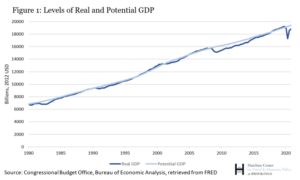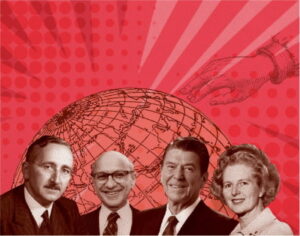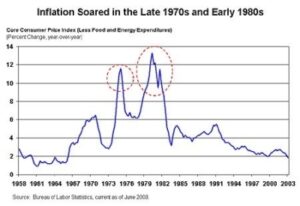This post is part of a series of posts that summarizes the book Angrynomics by Eric Lonergan and Mark Blyth.
If you found this post via search, it probably makes sense to start with the link to the full series, which is both here, and above.
Table of Contents
Angrynomics: How macro crashes released public anger
Which considering how our political and economic elites responded to the macro crashes, is completely understandable.
When they tell us “everything is good” when our own lived experiences show that to be not the case, what we see is they clearly don’t know what they’re talking about.
We are creatures of habit
Part of the “human experience” are the habits we form and the expectations we form about them.
We learn “basic norms” from the people around us.
From them, we learn aspects of how we set expectations for the future based on things that happened in the past.
Which could be our individual direct past experiences or the stories we hear from our parents and grandparents.
When circumstances change and we are forced to change our habits, it can be unsettling, to say the least.
And when the circumstances change in a very big way for a large segment of the population, such as drastically declining standards of living occurring within a single generation, it can create an environment of “constant uncertainty”.
Constant uncertainty is stressful
And this constant uncertainty is stressful. The poor among us have known this for forever, and as the middle-class shrinks and more of us become poorer, the stress of this constant uncertainty becomes more widespread.
Change requires effort, which for the stressed can be hard
Adapting to change requires effort, and while it may not seem like much effort, it’s a constant “background” effort.
And adopting to widespread systemic change requires a widespread constant “background” effort.
And when the main adaptation is “learn to make do with less”, this shows up as widespread stress within society.
Learning to make do with less pushes more of us to the edge of financial insolvency, where some external shock (a large medical bill, a large car repair bill, etc) is enough to stress us financially to the breaking point.
Major things can, and do, go wrong
But, things do go wrong, and sometimes things go wrong over which we have no control.
- Surprise medical bills happen.
- Cars break down or get stolen.
- Landlords jack up the rent.
- Factories close as manufacturing, and the jobs that go with it, move to Mexico.
- A global pandemic occurs.
We expect our institutions to reduce uncertainty
And while we count on institutions to reduce uncertainty in our lives, be they private companies, governments, charitable organizations, the economic decline within the industrial and manufacturing heartlands of the nations of the first world that are occurring within a single generation are creating enormous uncertainty.
And the institutions we expect to provide stability aren’t doing so.
People across the economy are understandably feeling nervous and stressed.
Work environments changed fairly quickly
The nervousness and stress are fueled by how quickly work environments have changed.
Factories moving to other countries, skills developed over years are no longer marketable, available jobs now pay half as much, and we hear every day how automation will make things even worse.
Immigration
And then politicians step in to rant about “us” vs “them”.
The problem is not that our latest configuration of capitalism broke, the problem is that “those” people are consuming resources that should be yours.
Is this a real problem? Are immigrants truly taking resources away from people who are descendants of other immigrants?
Does it matter?
Politics is about stories, not facts.
This cartoon, where I think the man in the middle is supposed to be Rupert Murdoch, expresses this idea very well.




